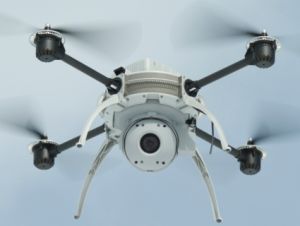North Dakotans Shouldn't Have To Live In A Surveillance State

It got overshadowed a bit by a couple of victories on the pro-life front, but the cause of civil liberties and personal privacy took a big hit yesterday when the state Senate voted down a bill which would have required that law enforcement obtain a warrant before using surveillance drone technology in a criminal investigation. And not only did common-sense regulation go down in flames, but the Senators refused to even give authorize a study into the situation.
Given that this technology is advancing rapidly, and that North Dakota is to become a center for drone research, these legislators didn’t even want to gather information on what regulations might be best to balance economic interests with privacy interests.
The risk drones pose to personal privacy was poo-pooed by legislators who suggested that existing privacy protections would be sufficient. One Democrat legislator, Senator Carolyn Nelson, even went so far as to suggest that privacy wasn’t a concern at all admitting that opponents of the bill were mostly concerned with the economic impact of the University of North Dakota getting a drone research program.
But there is a risk to privacy here.
“We should be able to live our lives without being constantly monitored by the authorities—unless the authorities have a specific, court-backed reason for the intrusion,” writes Steven Greenhut for Reason. “The New York Times found that drone operators at Holloman Air Force Base in New Mexico practice by tracking and spying on the occupants in civilian cars driving near the base, which is a small reminder that the government always abuses its powers.”
Our nation was founded by people who were suspicious of police power – you could argue that amendments 2 through 9 are all about protecting individual citizens from an overbearing police state – but we seem to have lost sight of that suspicion.
It’s not happening yet, but the potential for drones to become ubiquitous in our day-to-day lives is enormous. As is the case with all emerging technology, it is becoming cheaper and smaller all the time. The day may not be that far off when a trip to the grocery store may have you spotted and recorded by multiple drones.
In the aggregate, the sort of data that could be collected through these drones would mean a major loss of personal privacy.
I’m sure some will say that all sounds a little paranoid. But then, just a couple of decades ago, I’m sure most Americans would have found ridiculous the idea that a Presidential administration wouldn’t answer questions about whether or not they have the power to order assassination of a US citizen on US soil, yet it took a 13 hour filibuster from Senator Rand Paul (among others) to get an answer to that question.
A little bit of paranoia when it comes to the exercise of government power can be a good thing.
The opponents of the North Dakota drone bill argued that it was a solution in search of a problem. That we don’t need such protections because most law enforcement agencies in the state don’t even have access to drones yet. Of course, the operative word is yet.
We ought to have guidelines in place for drone use before they become fixtures in our daily lives. Unfortunately, the state Senate was more smitten with the economic arguments for drone research. That’s a shameful thing to rank over protecting the privacy of our citizens.







